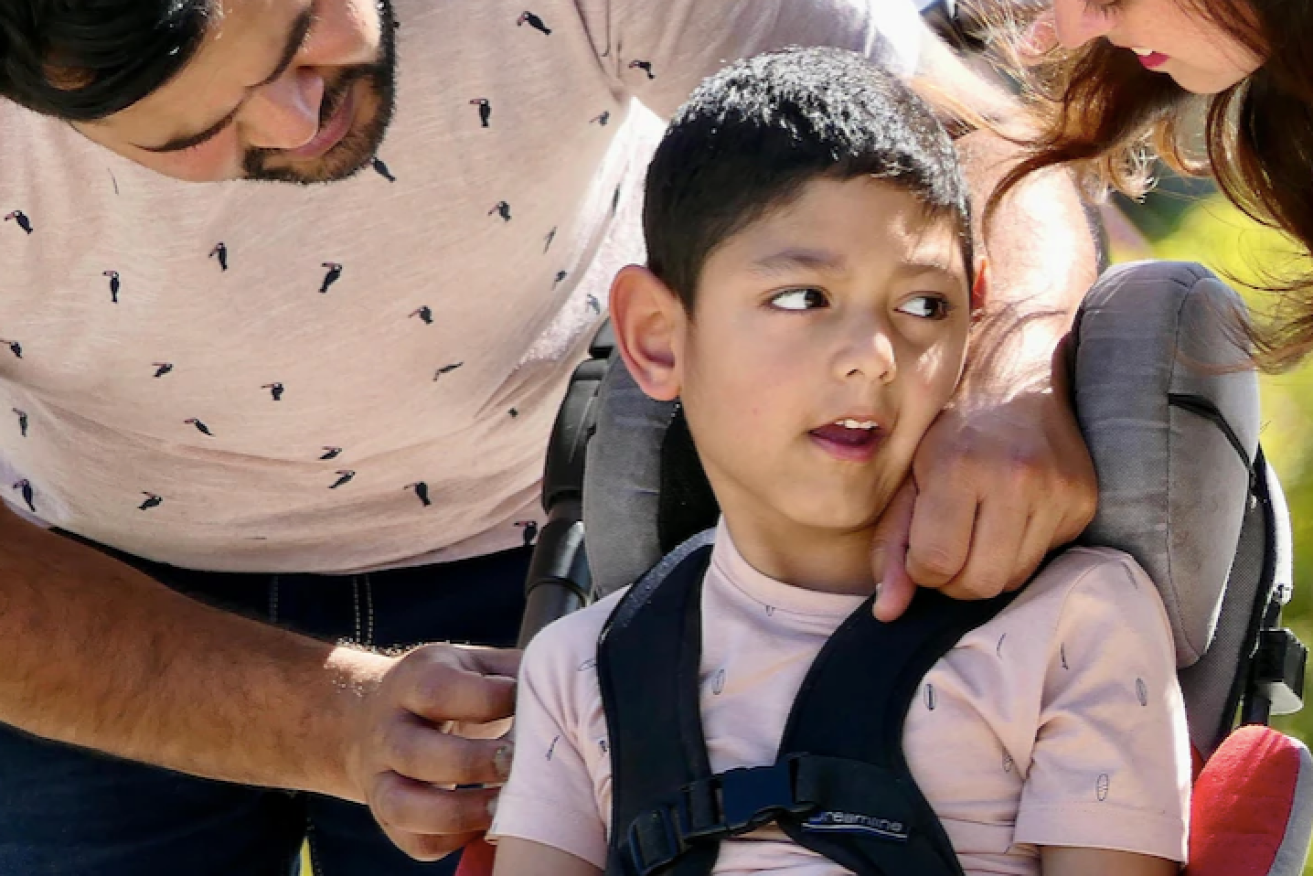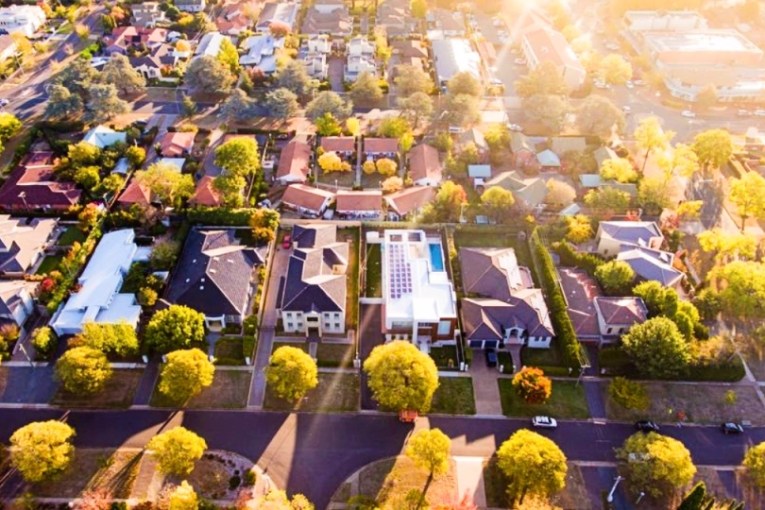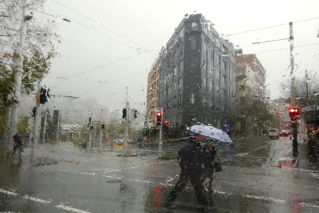The Australian-born children Home Affairs wants to deport because of disability

Varun and Priyanka Katyal fear their son's condition could get worse if the family were deported. Photo: ABC
If Kayaan Katyal didn’t have a disability, he’d likely be an Australian permanent resident by now.
But the six-year-old was born with cerebral palsy.
For that reason alone, Australia wants to deport him.
“The fact that he has an Australian birth certificate but he still doesn’t really have any rights in Australia … that just breaks our heart,” his father Varun says.
Kayaan’s laughter fills the living room of the family’s Melbourne home, his smile radiant.
“Hands up police!” he yells at his dad, playing a version of cops and robbers.
He doesn’t notice the tears of his parents as they sit beside him, or know about their fight to keep him in the only country he’s ever known.

A special needs playgroup coordinator says Kayaan’s progress shows he has a lot of potential. Photo: ABC
Varun Katyal came to Australia from India 12 years ago to study European cookery, and has been a chef in a restaurant for much of the time since.
Priyanka moved here eight years ago, after they married.
The pair have paid taxes, passed criminal checks and complied with everything asked of them by the Department of Home Affairs.
They were on track to receive permanent residency, and had dreams of opening a restaurant, when Kayaan was born premature at 32 weeks with cerebral palsy.
Under Australia’s Migration Act, that can be an automatic fail.
“The only thing that was wrong with our visa application, was not in our hands. The things that were in our hands, we did right,” Varun said.

Kayaan Katyal was born premature at 32 weeks with cerebral palsy. Photo: Supplied
The Department of Home Affairs makes it clear Kayaan’s disability is the only reason the family cannot stay.
In a rejection letter sent last month, it said it estimated Kayaan would cost taxpayers $1.23 million over 10 years, which “would be likely to result in a significant, undue cost to the Australian community in the areas of health care and/or community services”.
The Katyals are terrified their son will go backwards if they return.
Kayaan has just started prep at a local specialist school in Melbourne’s west, and is making progress with his speech and mobility.
Varun, who left India when he was 19, doesn’t know if he’ll be able to get work in India.
“Please, check our history again,” he asks the immigration department.
“Just don’t refuse our visa based on my son’s condition.”
‘I think it’s outrageous’: Calls for change
The Migration Act is one of the few pieces of legislation in Australia where it’s OK to discriminate against people based on their disability.
Exact data on how many children are ordered to leave because of their condition is not available, but advocacy groups say they come across about a dozen cases each year.
Sometimes, those who bring attention to their situation are able to stay, but mostly the struggles of these families are unbeknownst to everyday Australians.

Varun and Priyanka Katyal were on track for permanent residency and had dreams to open a restaurant. Photo: ABC
Jan Gothard, the co-founder of the advocacy group Welcoming Disability, has campaigned for changes to laws in this area for more than 20 years.
Despite a federal parliamentary Joint Standing Committee report in 2010 recommending the government make it easier for people with disabilities to be granted visas, she said little has changed.
“They’re on a permanent trajectory [for residency], then a child with a disability is born and all of a sudden they’re just not good enough for us,” Dr Gothard said.
“I think it’s outrageous, I really do.”

The family has spent more than $40,000 on legal and immigration fees. Photo: ABC
It’s drawn ire internationally, with the United Nations in 2019 calling on Australia to make its immigration rules more equitable.
After Canada faced similar criticism, it overhauled its Migration Act in 2018, and Dr Gothard said the same should happen here.
“It’s not like the floodgates will open … the costs are not huge,” she said.
“I see families who are made to suffer for years and years and years going through the system.
“For the sake of those relatively few families affected, the (laws) should be adjusted.”
In a statement, a spokesperson from the Department of Home Affairs said not all people with disability were rejected for permanent residency, and individuals were assessed based on the cost to the community and whether it would prejudice the access of Australian citizens and permanent residents to services in short supply.
Leaving Australia a ‘death sentence’ for some children
Aside from the stress and anxiety for the families, there are concerns about the children’s outcomes.
Kayaan’s doctor, Barry Rawicki from the Monash Children’s Hospital, knows firsthand the medical system that awaits his patient in India.

The Australian Government has defended its policy. Photo: ABC
The head of the Victorian Paediatric Rehabilitation Service has worked there multiple times in his career, and said if the Katyals could pay top dollar, they would be served well.
But the Katyals say they don’t have that kind of money.
“If finances are an issue … Kayaan’s outcome would be much worse than they would be in a system, such as here, where he can access both medical and allied health treatment,” Associate Professor Rawicki said.
“As an individual, and as Kayaan’s doctor, then I’d be advocating for him to be able to stay to get the treatment that he needs.”
In some cases, it’s life or death.
In Western Australia, the Jamshaad family have been fighting to stay in Australia after their son, four-year-old Kayban, received a brain injury during birth.

In Western Australia, Kayban’s parents say deporting him would amount to a “death sentence”. Photo: ABC
They’ve been here for nine years — but their request for permanent residency was rejected because of Kayban’s condition, which requires a range of complex care.
The Administrative Appeals Tribunal last year asked the department to reassess the case, but Kayban’s mother, Shizleen Aishath, said they were not sure what fate awaits them when the visa expires next year.
“Because of the multiple complexities that Kayban lives day in, day out – for him [it would] basically [be] a death sentence,” she said.
‘We came here for a better future’
For the parents at Kayaan Katyal’s former playgroup, which caters for children with special needs, the decision should be clear cut.
“Why should someone be discriminated against because they have a disability?” asks Laura Atwell, whose daughter Ivy also has cerebral palsy.
“We have the NDIS and we’ve come a long way … but I think that’s just wrong.”

Kayaan Katyal has been making good progress at a playgroup for children with special needs. Photo: ABC
Meredith Biggs, the coordinator of Malvern Special Needs Playgroup, said the Katyals had been incredible, generous members of their community in the four years she’d known them and the situation was heartbreaking.
“We’re here to support people with disabilities, not send them offshore because they do have a disability,” Ms Biggs said.

She pointed to the current skills shortage facing Australia in hospitality and the pause on immigration due to coronavirus.
“We need positions filled,” she said.
“We need people like Varun who’s been trained in our country and can offer his amazing services and continue working in Australia and giving to the community.”
Ms Biggs said the fact the department’s refusal was based on a financial assessment of Kayan’s cost to society was heartless.
“What about the benefit?” she asked.
“With the progress we’re seeing now, I’m sure [Kayaan] will be in the future a contributing member to society and probably a taxpayer himself.
“He just needs the correct supports.”

Varun and Priyanka Katyal say they’ve done everything right in their efforts to gain permanent residency. Photo: ABC
Varun and Priyanka Katyal feel the same way.
“He can be a big asset in future,” Varun said.
“I’m sure if Kayaan gets the opportunity to do something, he will do something good. We can see the potential.”

Six-year-old Kayaan’s parents fear they wouldn’t be able to afford quality care in India. Photo: ABC
After spending more than $40,000 on legal and immigration fees, and being unable to make long-term plans in Australia or access the NDIS, they are at the end of their tether.
“Sometimes I just think: is Australia too weak? Just to help a child?” he said.
“Because when we came here we came here for equality, we came here for a better future. We were thinking, you know – everyone gets treated equal in a country like this.”
A spokesperson for the Department of Home Affairs said the current rules were pragmatic and balanced compassion and cost containment.
“The Australian Government administers the migration health requirement to protect the community from public health and safety risks, contain public expenditure on health care and community services, and safeguard the access of Australian citizens and permanent residents to health care and community services in short supply,” they said.
“The current policy does not discriminate against applicants who have a disability or illness, or a combination of both, with all applicants being treated in an equal and fair manner.”
-ABC








